
NHS
Merseyside Mum helps raise awareness for rare genetic condition that is linked to cancer
2 years ago

A Merseyside mum is raising awareness of testing for a rare genetic condition that sharply raises the risk of cancer.
Thousands of people across Merseyside and Cheshire are now being checked for Lynch syndrome, an inherited condition that increases the chance of people developing bowel cancer by around 80% – and heightens the risk of other cancers, especially gynaecological cancers in women. All patients in Merseyside and Cheshire who are diagnosed with bowel cancer are now being offered an NHS test for Lynch, so that they and in their families can be especially vigilant for the signs and symptoms of cancer – and family members also can take the opportunity to take the test themselves.
Cheshire and Merseyside Cancer Alliance has helped to bring in the test for Lynch with the North West Genomic Medicine Service Alliance across all healthcare trusts in the area. Those people found to be positive for Lynch are offered increased NHS screening, lifestyle advice and can be given preventative medicine and options for surgery, which are all designed to reduce their risk of developing cancer. Those found to have Lynch after a cancer diagnosis can be offered more appropriate treatment. However, a lack of awareness of the condition means that most people with the syndrome do not know they have it.
Knowsley mum Leeshon Yip is one of those people who only became aware that she had Lynch after a test following her diagnosis for bowel cancer. Leeshon has had cancer treatment through The Clatterbridge Cancer Centre in the Lilac Centre clinic at St Helens Hospital and was offered the chance of a test.

“I was happy to have it,” says Leeshon, aged 47, from Whiston, who is raising awareness of the test during this Hereditary Cancer Awareness Week.
“Since I had the test and was told I had Lynch syndrome, a few things have fallen into place. My mum died of cancer at the age of 50 and my great aunt and my mum’s cousin had bowel cancer, so it is not a surprise there was something that was inherited.
“It is much better to know you have this, so that you can be aware. Knowing you are positive means you can be much more vigilant about watching out for things.”
Around half of the offspring of someone with Lynch also have the mutated gene which causes the syndrome. So, the test has also been offered to members of Leeshon’s family.
Her sister, Sue, has been tested and is negative for the condition, but her 19-year-old son, Mason, is as yet undecided about if he wants to take it or not, although Leeshon says he will be more vigilant in watching out for the signs and symptoms of cancer from now on, in any case.
Leeshon, whose cancer is now in remission but who is still having some treatment at The Christie Hospital in Manchester, said: “I had never heard of Lynch syndrome and I was surprised that my test was positive. But it is really important that people with bowel cancer are tested, and others who are at risk, so that they can be more aware of their bigger risk of cancer.”
The test is now being carried out in all NHS hospital trusts in Cheshire and Merseyside after the Cancer Alliance helped to improve the capacity in pathology labs across the sub-region so the increased number of tests – either through a biopsy of a tumour or a blood test – could be carried out.
The Cancer Alliance also established a ‘Lynch champion’ in each trust to ensure the testing was implemented in a consistent way; and provide training where needed.
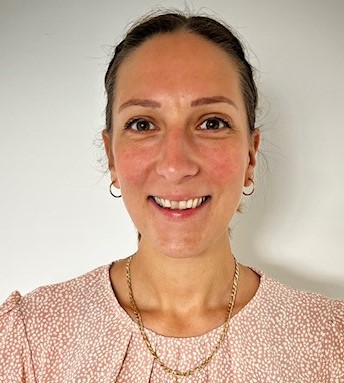
Grace Garner, the Cancer Alliance’s Genomics Project Manager, said:
“In the coming years, this genetic test will find hundreds of people who are living with Lynch syndrome but are not aware of it across Cheshire and Merseyside.
“Those people who test positive will be given genetic counselling so the NHS can help them to reduce their risk of cancer, increased access to scans, and give them effective treatment tailored to them if they have cancer and this is necessary.
“Genetic testing for cancer has worked successfully to identify women who are more likely to develop breast and ovarian cancer due to mutations in the BRCA1 and BRCA2 genes and this Lynch test can be as important in the early diagnosis of cancers, especially bowel cancer.”

Dr Zahed Khan, Consultant in Medical Oncology at Clatterbridge who supervises Leeshon’s treatment and follow-up, said:
“I am really happy that the test in relation to Lynch syndrome is now being done routinely for all patients diagnosed with colorectal cancer in our network.
“This allows us to identify those with Lynch syndrome and tailor their treatment approach, as well as appropriate genetic counselling extending to family members and targeted surveillance that will help diagnose other cancers, hopefully in early stage, leading to better overall outcomes.
“It is also important to be aware that an increasing number of younger people are being diagnosed with colorectal cancer. I hope this awareness will alert young people to seek medical help sooner for their bowel symptoms.”


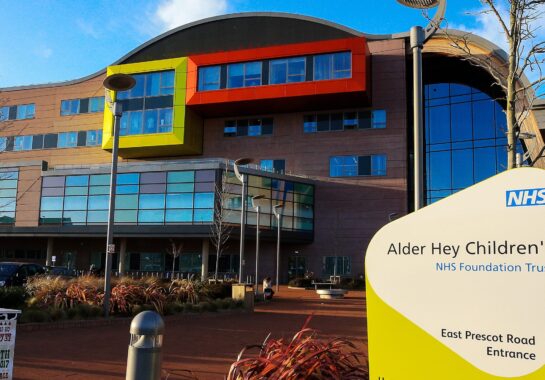

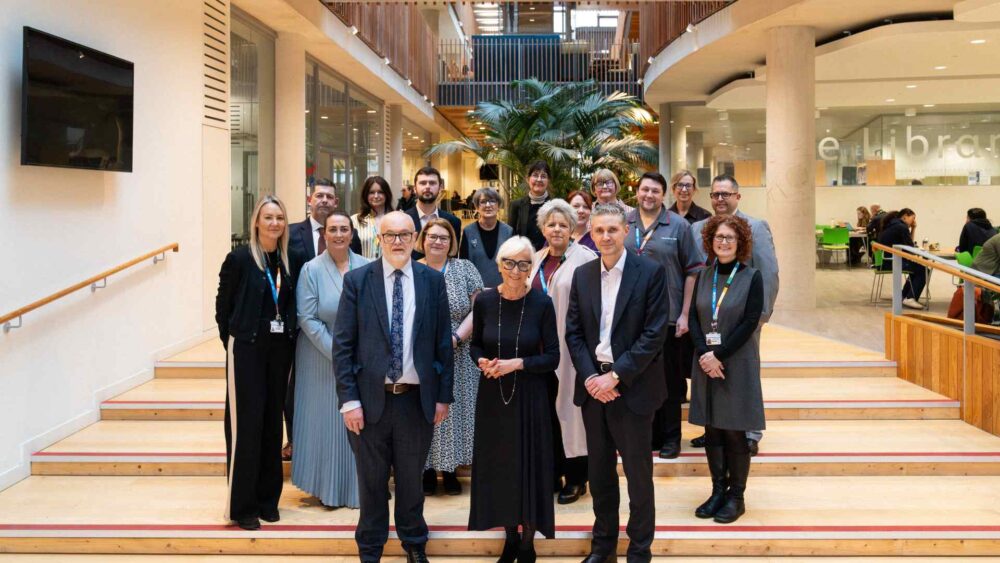
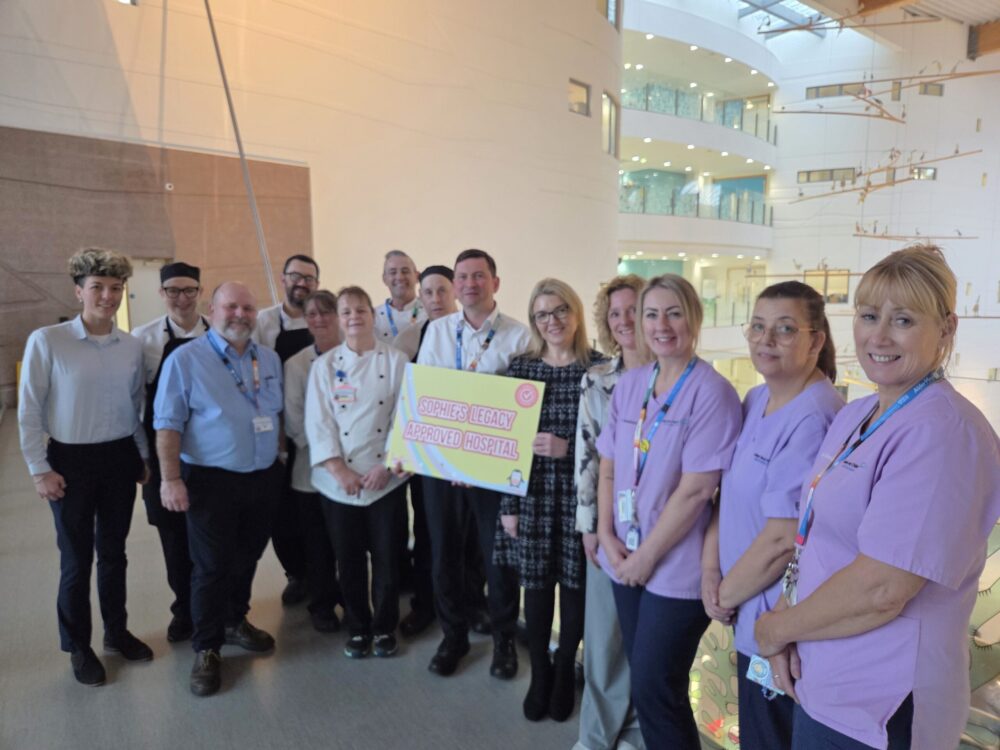


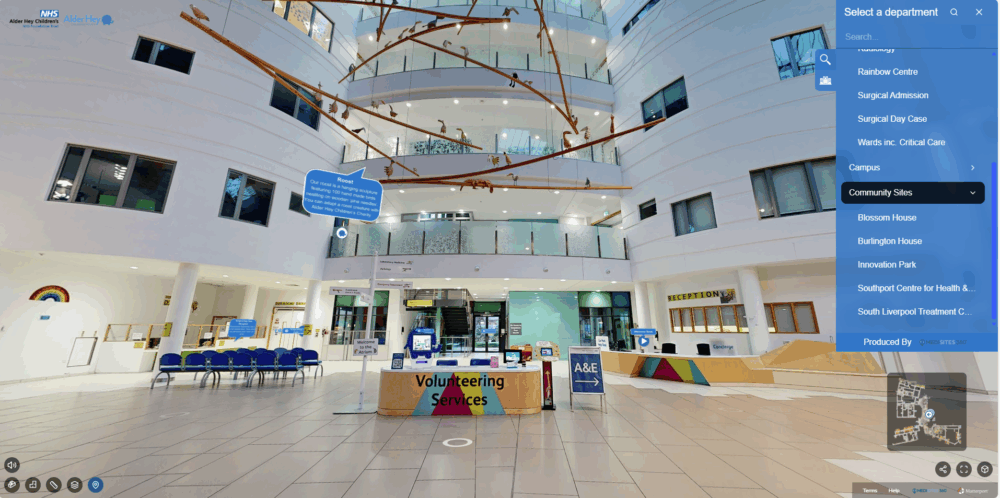
 Subscribe
Subscribe Follow Us
Follow Us Follow Us
Follow Us Follow Us
Follow Us Follow Us
Follow Us Follow Us
Follow Us











